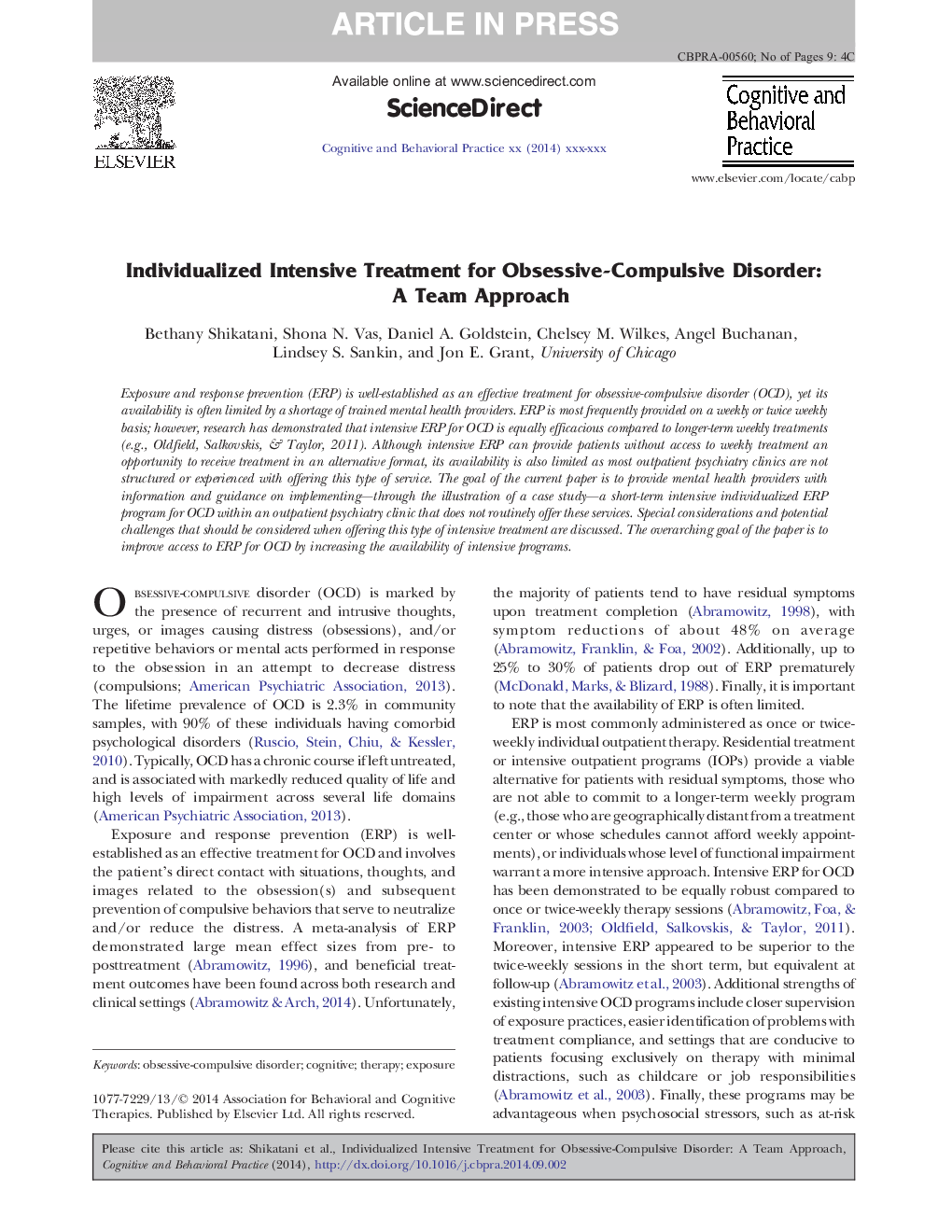| Article ID | Journal | Published Year | Pages | File Type |
|---|---|---|---|---|
| 10446150 | Cognitive and Behavioral Practice | 2016 | 9 Pages |
Abstract
Exposure and response prevention (ERP) is well-established as an effective treatment for obsessive-compulsive disorder (OCD), yet its availability is often limited by a shortage of trained mental health providers. ERP is most frequently provided on a weekly or twice weekly basis; however, research has demonstrated that intensive ERP for OCD is equally efficacious compared to longer-term weekly treatments (e.g., Oldfield, Salkovskis, & Taylor, 2011). Although intensive ERP can provide patients without access to weekly treatment an opportunity to receive treatment in an alternative format, its availability is also limited as most outpatient psychiatry clinics are not structured or experienced with offering this type of service. The goal of the current paper is to provide mental health providers with information and guidance on implementing-through the illustration of a case study-a short-term intensive individualized ERP program for OCD within an outpatient psychiatry clinic that does not routinely offer these services. Special considerations and potential challenges that should be considered when offering this type of intensive treatment are discussed. The overarching goal of the paper is to improve access to ERP for OCD by increasing the availability of intensive programs.
Related Topics
Health Sciences
Medicine and Dentistry
Psychiatry and Mental Health
Authors
Bethany Shikatani, Shona N. Vas, Daniel A. Goldstein, Chelsey M. Wilkes, Angel Buchanan, Lindsey S. Sankin, Jon E. Grant,
